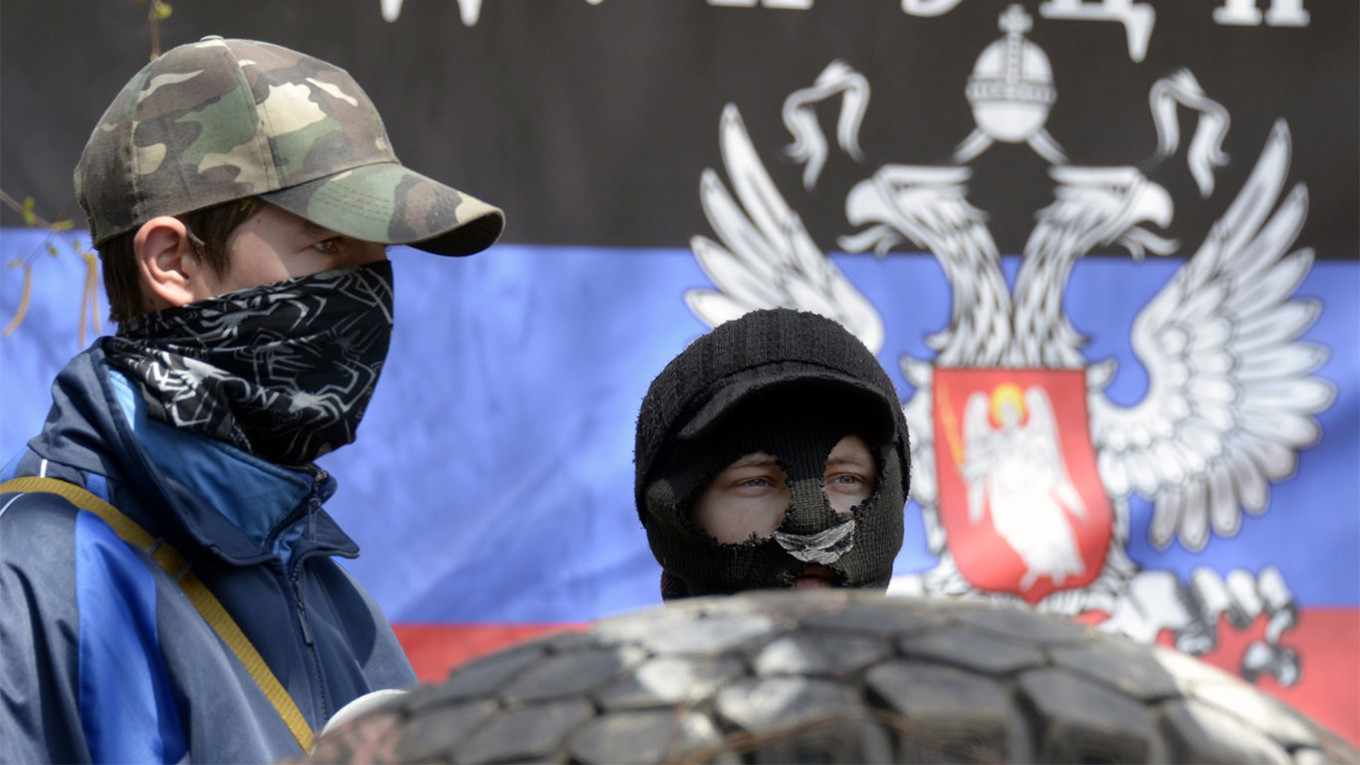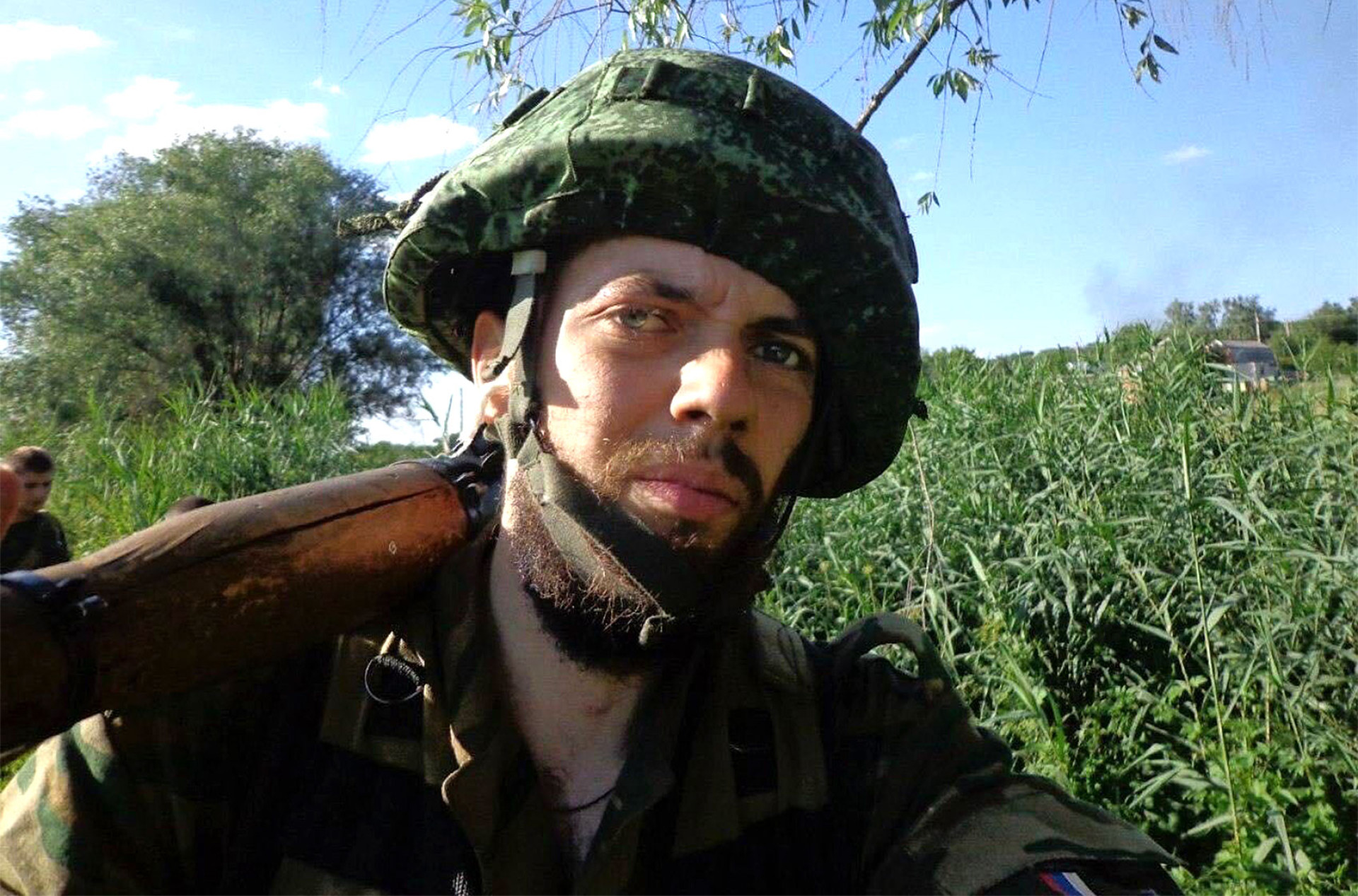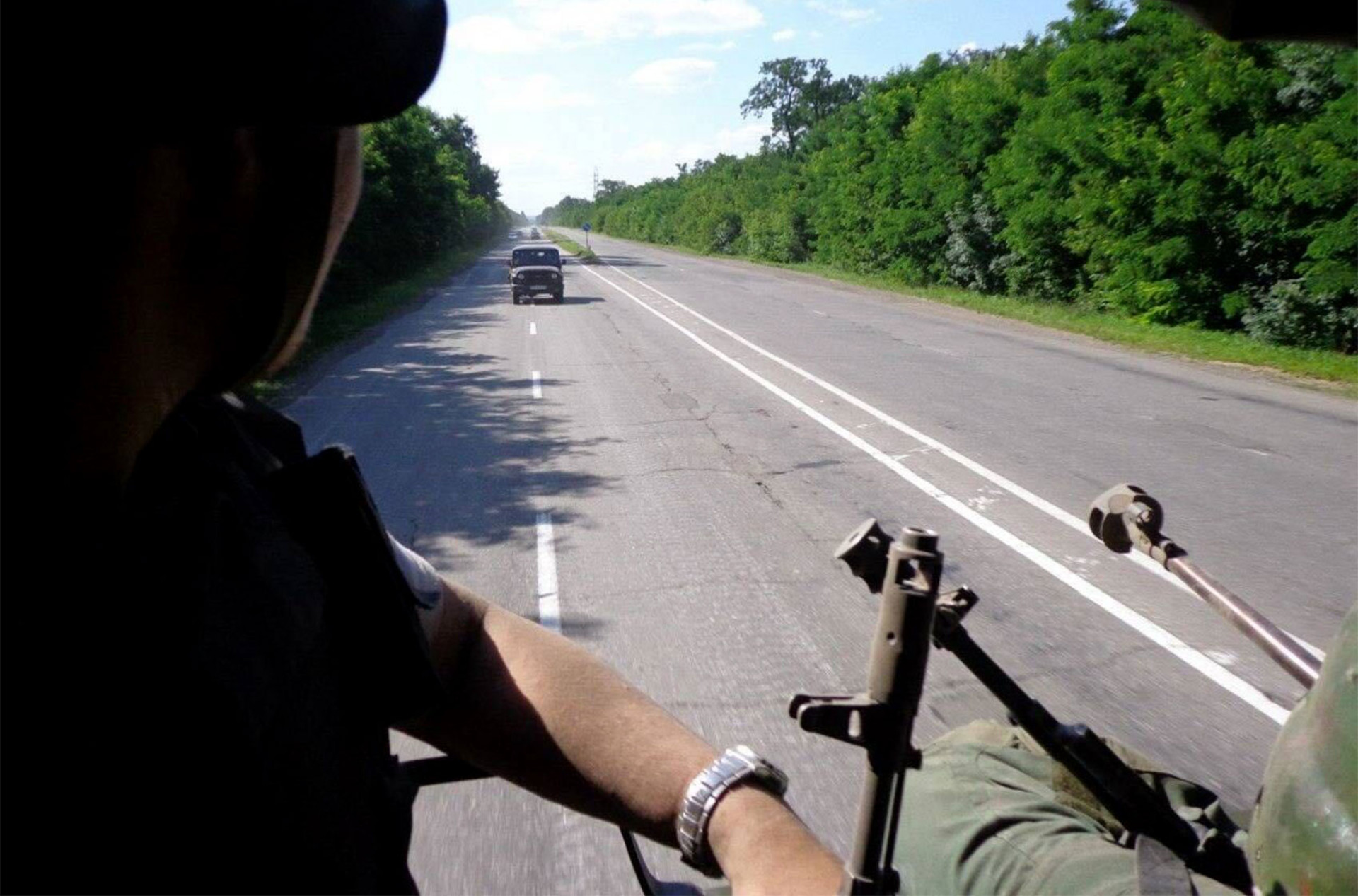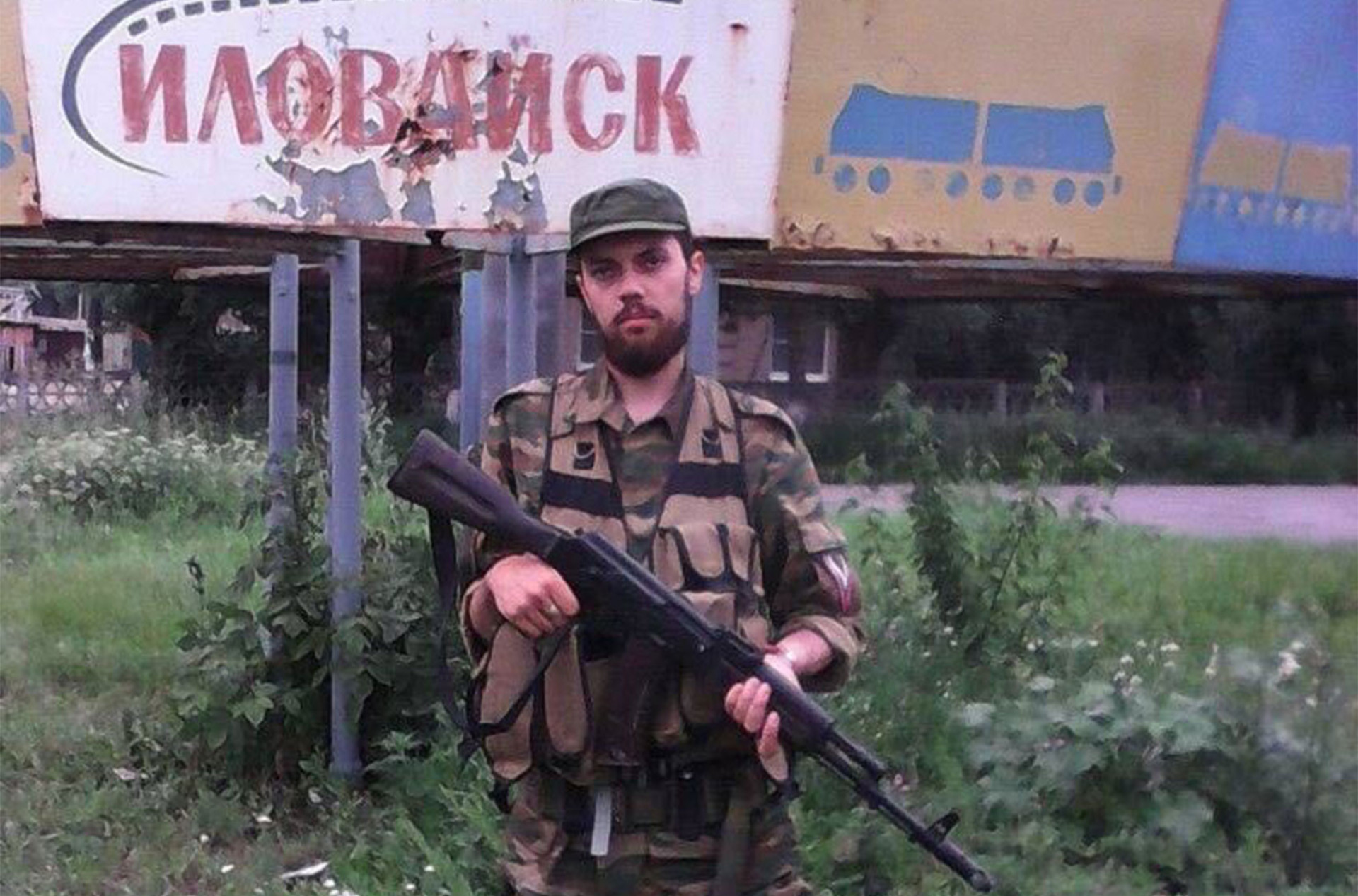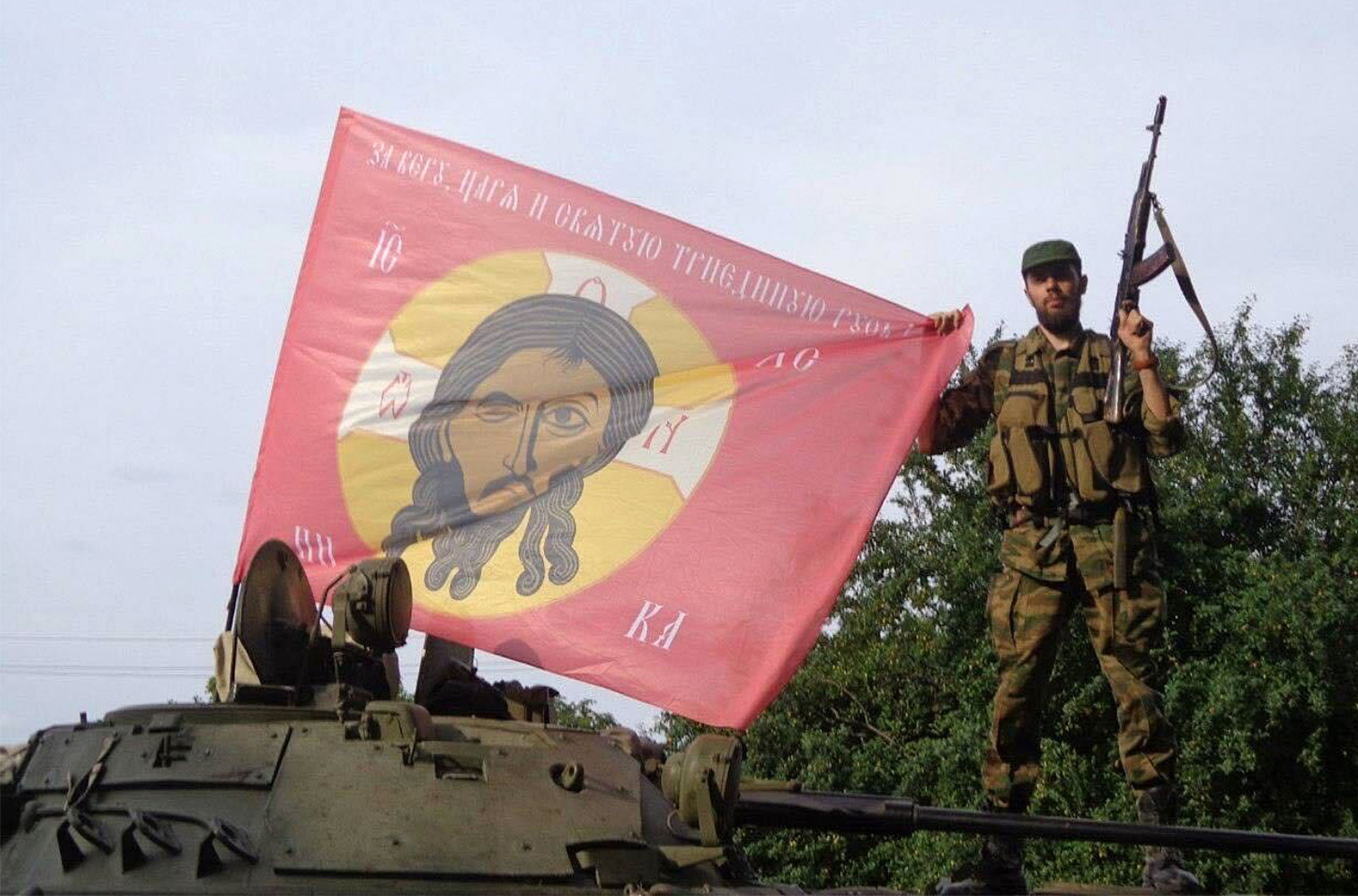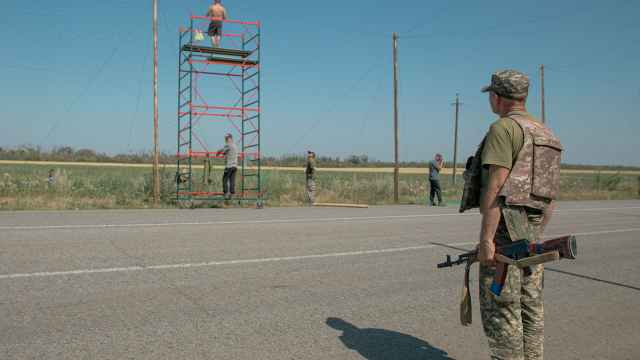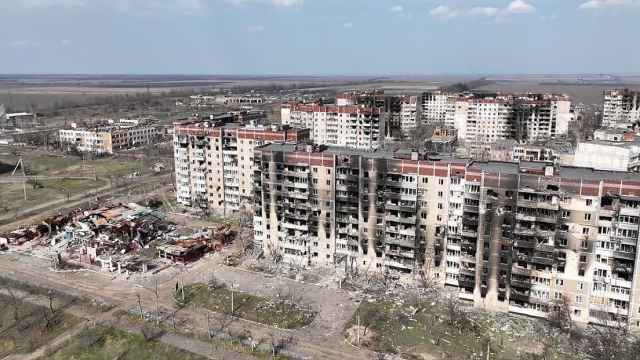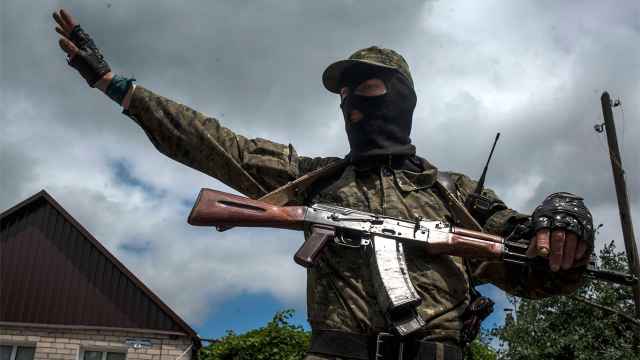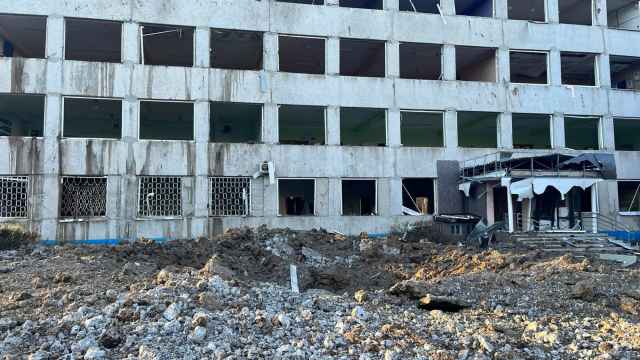Ten years ago, Alexander Krasnogorodtsev, an artist from St. Petersburg, told his parents he was going on a trip to the White Sea to paint Russia’s northern landscapes and would be off the grid for a while.
Instead, the 24-year-old drove to Rostov-on-Don, a city about 1,500 kilometers to the south, crossed the Ukrainian border and joined the pro-Russia militias that had just launched an armed uprising against the government in Kyiv.
Krasnogorodtsev is among the thousands of Russian citizens who, in the spring and summer of 2014, joined the armed insurgency in eastern Ukraine that marked the initial phase of Russia's covert invasion of its neighbor.
During the conflict's early stages, Russia refrained from direct military intervention in eastern Ukraine. Instead, it carried out information warfare and provided limited material support to local insurgents.
To maintain plausible deniability, Russia largely relied on a network of nationalist and paramilitary organizations that recruited, trained and dispatched volunteers to the front lines.
The Moscow Times interviewed several men who fought as volunteers or organized the recruitment of volunteers in the Donbas about the events of the spring and summer of 2014.
These events would set off a bitter eight-year conflict between Kyiv and Moscow-backed forces that saw over 14,000 soldiers and civilians killed and was eventually subsumed by the Kremlin’s full-scale invasion of Ukraine in February 2022.
Motivations
Russian citizens who joined the Donbas conflict in the spring of 2014 were backers of the insurgency against Ukraine's new pro-Western government formed after the Maidan Revolution, which they saw as illegitimate and believed encroached on the rights of Russian speakers in the country.
The Ukrainian parliament’s move in February 2014 to strip Russian and other minority languages of their official language status was a particular source of anger. The tragedy in Odesa on May 2, when dozens of pro-Russian activists died in clashes with pro-Maidan protesters, also motivated many Russian volunteers to join the insurgency.
Many among them were Russian nationalists and imperialists who saw the uprising as an opportunity to resurrect "Novorossiya," or New Russia, an imperial-era term referring to swathes of southeastern Ukraine.
“The Russian nation strives with all possible means to return its historical lands,” Krasnogodotsev told The Moscow Times of his motivations at the time. “It is a matter of historical survival, preserving itself as a nation.”
As anti-Maidan protests spread across eastern Ukraine in March 2014, he actively sought a way to participate in the uprising.
“I couldn’t limit myself to humanitarian aid or financial support,” he said.
Eventually, an acquaintance from the Russian All-Military Union, a paramilitary nationalist group, contacted him on social media and told him about the group’s recruitment drive for volunteers to join the fighting in Donbas.
Although the closest thing he had to military experience was his time playing strikeball, Krasnogorodtsev didn't hesitate.
“Back then it was just about ideals since there was no money involved,” remembers Pavel Eremeev, 41, another former volunteer from St. Petersburg.
In the summer of 2014, he left his job as a senior accountant and joined the militia of the self-proclaimed Luhansk People's Republic to “help other Russian people like him who were rebelling.”
The trigger of war
Until early April, the conflict in eastern Ukraine was mostly limited to street clashes between supporters of Maidan and backers of Russia.
But on April 12, a group of armed men led by former FSB officer Igor "Strelkov" Girkin crossed from Russia into Ukraine. This group, made up of both Russians and Ukrainians, with the help of local fighters, seized control of the Sloviansk administrative building, taking control of the city.
The next day, the government in Kyiv announced the start of an anti-terrorist operation against the insurgents.
Girkin later claimed responsibility for “pulling the trigger of the war” in Donbas, despite the Kremlin's insistence that Russia was not involved. If it wasn’t for him and his unit, Girkin said, the uprising would have probably fizzled out as it did in Kharkiv, where Ukrainian law enforcement re-established control over administrative buildings.
Other participants of those events agreed that Girkin and his group of volunteers played a key role in the conflict’s escalation.
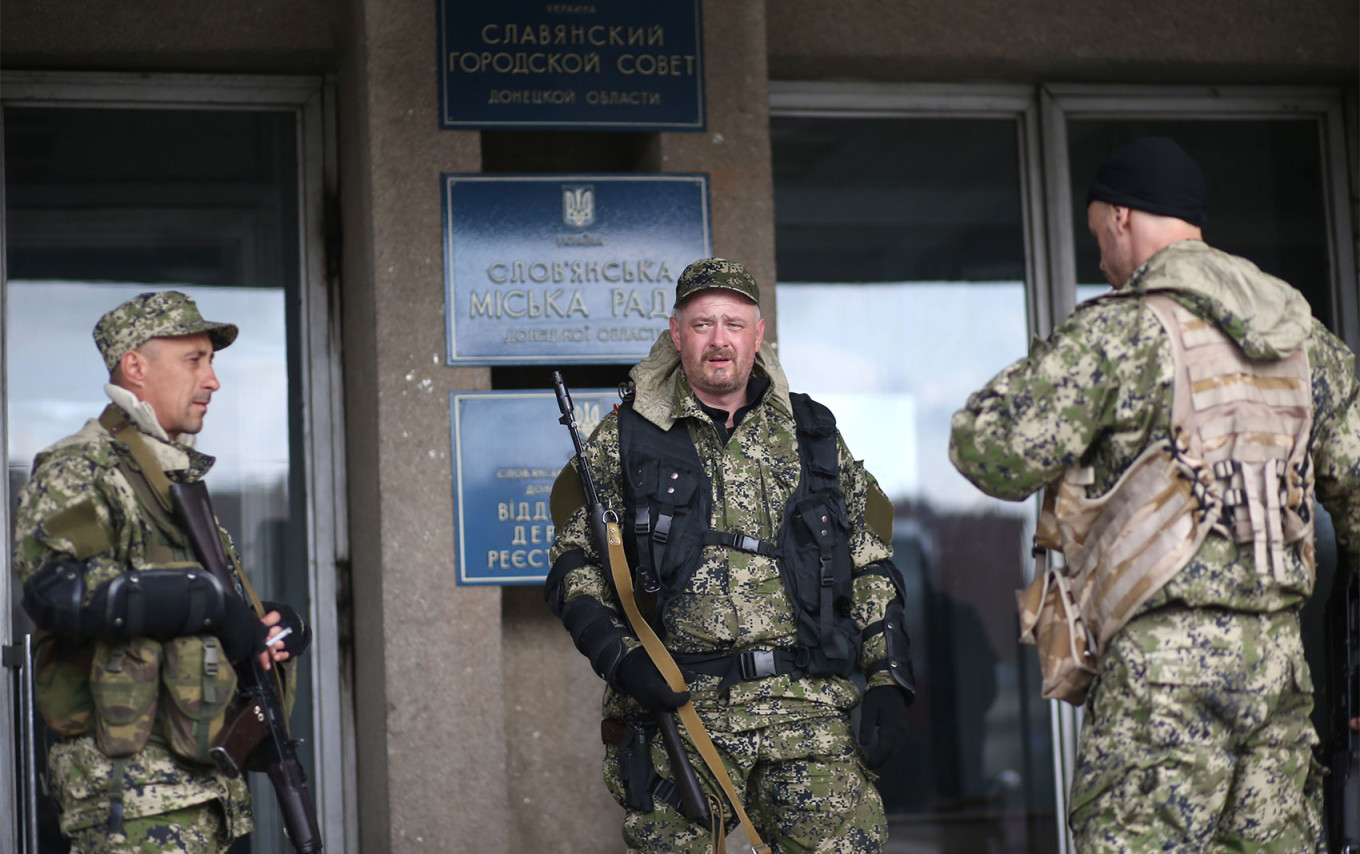
“Back then they [pro-Maidan and anti-Maidan activists] were all citizens of Ukraine and people were not morally ready to shoot at each other,” said Alexei Selivanov, 44, a former Ukrainian official and pro-Russian rebel who is currently serving in the Russian military on Moscow-occupied Ukrainian territory.
“Strelkov was ready for a decisive transition into an armed confrontation,” he continued.
“The rebels couldn’t really resist the regular Ukrainian army,” said Stanislav Vorobyov, 63, the head of the Russian Imperial Movement, an ultra-nationalist organization based in St. Petersburg that was recruiting volunteers for the fighting in Donbas.
“Without the Russian volunteers, there would have been no victorious uprising,” he said.
In 2022, Girkin was convicted by an international court for the downing of civilian flight MH17 and sentenced to life in prison in absentia. The same court also ruled that Girkin’s forces at the time were de facto under Russia’s control.
He was sentenced to Russian prison in March 2024 on charges linked to his criticism of Russia’s war strategy during its full-scale invasion of Ukraine.
Russian non-state actors
A network of Russian nationalist and paramilitary organizations played a major role in organizing, training and sending volunteers to fight in the Donbas with Moscow’s tacit consent.
Girkin said his mission was funded by conservative oligarch Konstantin Malofeyev, a claim the latter denied.
The Russian Imperial Movement claimed to have recruited at least 300 people to fight in the Donbas in 2014-2015. The organization’s military wing, the Imperial Legion, provided a two-week training course to volunteers before sending them to Ukraine.
“Every two weeks we would send 10 men,” recalls Vorobyov, who claims their activities were funded exclusively by volunteer donations.
In 2021, the Russian Imperial Movement was designated as a terrorist group by the United States and Canada.
“We would meet them in Rostov, drive them across the border and send them to Sloviansk,” remembers Pavel Gubarev, a former Ukrainian citizen and pro-Russian separatist leader who personally oversaw the recruitment of volunteer fighters.
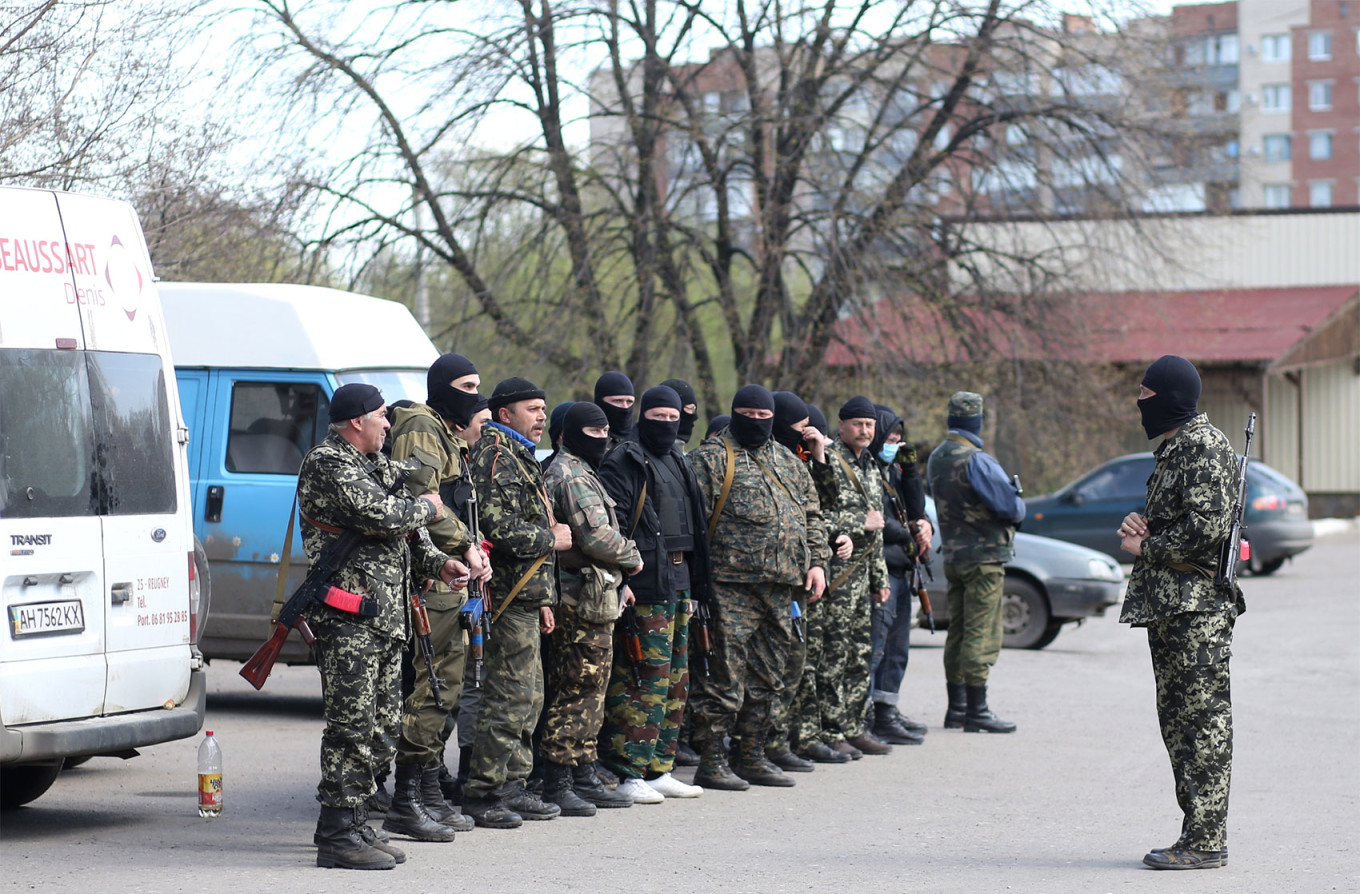
His organization facilitated Girkin and his men's crossing over the border by using a van that was allegedly smuggling a cargo of apples into Ukraine.
According to Gubarev, his organization alone recruited about 2,000 volunteers from Russia from May to September 2014. He estimated that up to 20-30% of the separatist army in the summer of 2014 was made up of Russian citizens, while the rest were locals.
Gubarev noted that there was little screening during the recruitment process, allowing physically unfit individuals and former convicts to join the militia's ranks.
“We were very much in need of manpower,” Gubarev remembers. “You can’t fight? Everyone can dig [trenches], you have legs and hands, please get to work.”
Many volunteers coming from Russia already had combat experience from previous conflicts in Afghanistan and Chechnya and often took on leadership roles in the armed uprising.
“They were the backbone around which people who were willing to fight would gather,” said Vorobyov.
“There was a need for people with combat experience so people coming from Russia would become instructors,” said Selivanov.
Crossing the border
Like many other volunteers, Krasnogorodtsev crossed the Ukrainian border illegally in late June, bypassing official checkpoints that were still under the Ukrainian authorities’ control at the time.
“The border as such didn‘t exist so it was possible to cross the border through the fields,” the volunteer recalled.
After reaching the other side, he was sent to the Sloviansk front without any military training.
Back then, Russia’s military support was very limited and separatists were facing severe weapon and ammunition shortages.
“For Russia we were like luggage without handles — it’s hard to carry, but a pity to throw it away,” Krasnogorodtsev said, using a Russian proverb to describe the Russian government’s hesitant approach in supporting the separatist cause.
The volunteer recalls his unit fighting with rusted Kalashnikovs and grenade launchers dating back to World War II.
As part of Girkin's garrison, he struggled to hold the city, hoping for Russia to intervene like it did in Crimea. However, this intervention never materialized. By early July, Strelkov and his men were forced to abandon the city, which was then liberated by Ukrainian troops.
By this time, the armed uprising had spread to other cities in the Donbas region.
Following their retreat from Sloviansk, Krasnogorodtsev and his unit were deployed to defend the separatist-held city of Ilovaisk near Donetsk. It was there that he was wounded in the arm from grenade shrapnel and had to return to Russia.
Despite a continuous influx of Russian volunteers, the tide of battle began to shift in the Ukrainian army’s favor by late summer.
“Our situation was critical,” remembers Krasnogorodtsev. “Strelkov didn’t have enough people, primarily people with proper training who could become competent commanders.”
To prevent the pro-Russian separatists’ imminent defeat, Moscow escalated its covert support in August by deploying regular troops disguised as "vacationers" — Russian soldiers on leave.
Despite Russia's persistent denial of direct military involvement, independent media reports confirmed the presence of regular Russian soldiers engaged in combat in Ukraine.
By late August, Girkin resigned as defense minister of the Donetsk People's Republic and was replaced by leaders directly controlled by Moscow.
Following Russia's military intervention, separatist forces inflicted a heavy defeat on Ukrainian forces in Ilovaisk in August and later in Debaltseve in February 2015.
“Precisely these divisions changed the course of the war when we were about to be defeated,” Gubarev remembers.
At that point, Moscow and Kyiv signed the second Minsk agreement, which marked the end of the active phase of the conflict in Donbas.
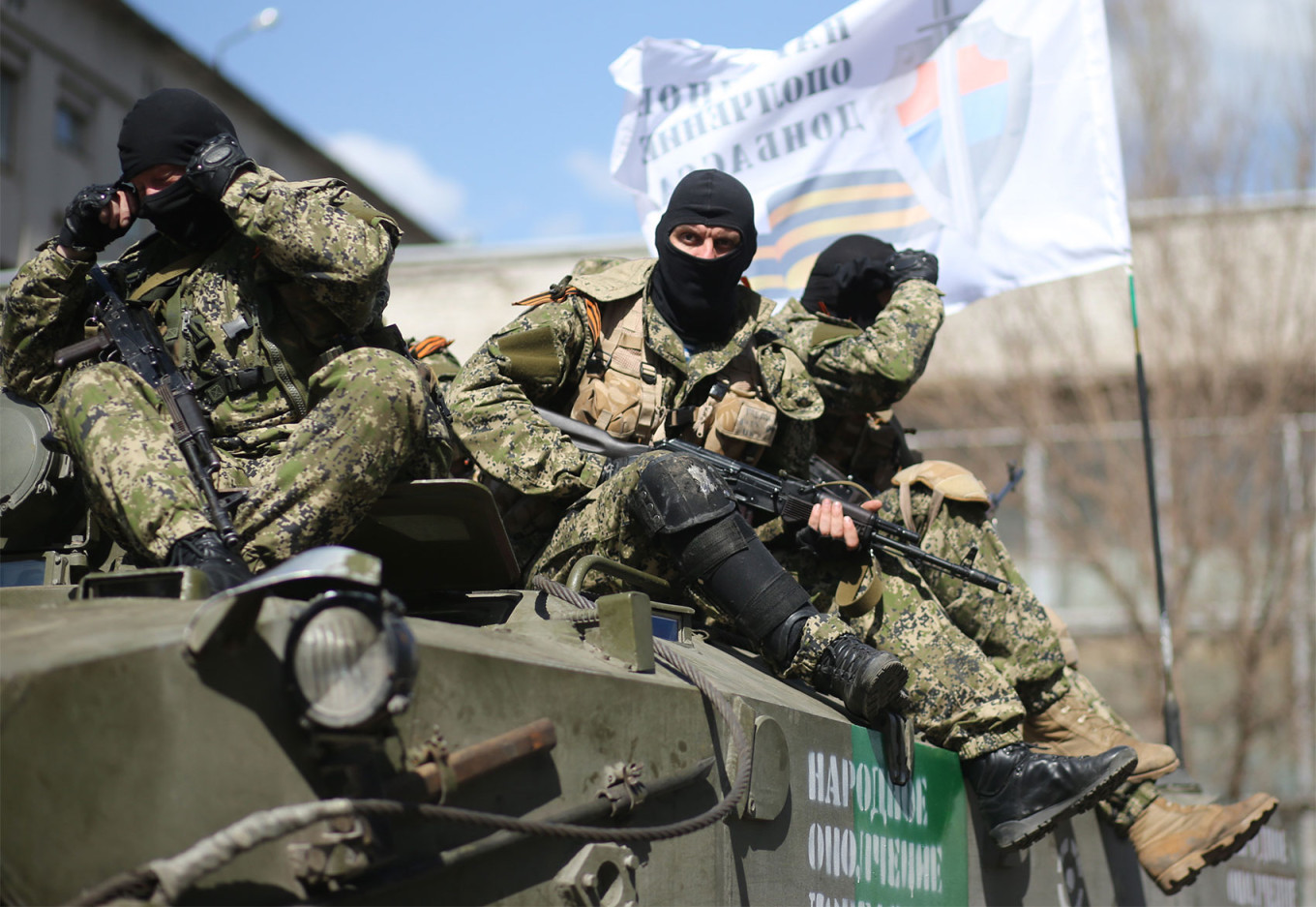
Many volunteers interviewed by The Moscow Times criticized the Minsk agreement as a missed opportunity to inflict a devastating defeat on Ukraine when it was still unprepared to face a large-scale Russian offensive.
“After that, we could have gone forward and captured the whole of Ukraine with no resistance, but that decision was not taken and now we all understand what a catastrophic and terrible mistake that was,” Gubarev said, referring to the grinding conflict raging in Ukraine today.
“That was treason,” Vorobyov said.
“Banging your head against the defenses that the Ukrainian armed forces built for 10 years is not the peak of military art,” Krasnosgorodtsev agreed.
Full-scale invasion
Krasnogorodtsev went back to Russia in 2014 because of his injuries and waited for years for the conflict to reignite. When Moscow launched its full-scale invasion in February 2022, he decided not to return to battle, as he had just gotten engaged.
“Since this issue is being dealt with on a state level by people who were specifically trained, let them take care of it,” says Krasnogorodtsev, who now works as an art teacher and painter in St. Petersburg.
Other 2014 volunteers are still fighting in Ukraine as part of Russia’s conventional army in a war that is described by Ukraine and its allies as existential for its independence.
Today, the Russian Imperial Movement is still training soldiers in St. Petersburg for the war in Ukraine as part of a private military company under the command of the Defense Ministry.
Eremeev is now about to sign his second six-month contract with the Russian army and go back to the front.
“It could have happened more quickly, but still not bad,” Eremeev says, referring to the full-scale invasion of Ukraine in February 2022. “I wish we could have come to Odesa when we were a bit younger, but we are still not that old after all.”
A Message from The Moscow Times:
Dear readers,
We are facing unprecedented challenges. Russia's Prosecutor General's Office has designated The Moscow Times as an "undesirable" organization, criminalizing our work and putting our staff at risk of prosecution. This follows our earlier unjust labeling as a "foreign agent."
These actions are direct attempts to silence independent journalism in Russia. The authorities claim our work "discredits the decisions of the Russian leadership." We see things differently: we strive to provide accurate, unbiased reporting on Russia.
We, the journalists of The Moscow Times, refuse to be silenced. But to continue our work, we need your help.
Your support, no matter how small, makes a world of difference. If you can, please support us monthly starting from just $2. It's quick to set up, and every contribution makes a significant impact.
By supporting The Moscow Times, you're defending open, independent journalism in the face of repression. Thank you for standing with us.
Remind me later.



